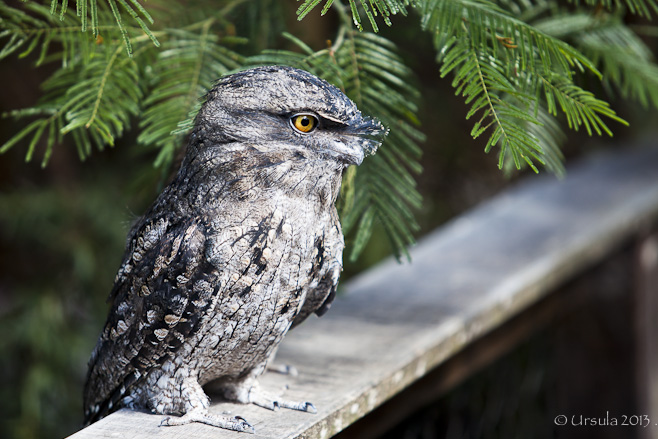
Tawny Frogmouth (Podargus strigoides)
Not being much of a Twitcher, I don’t get many good bird portraits. So, I was really excited to be this close to a frogmouth!
Where can you go when you have overseas visitors and a new camera lens that needs trying out?
What could be better than a native Australian animal sanctuary!
Luckily for us, we have one right in our neighbourhood. The quaintly named “Potoroo Palace” is set off the Princes Highway, not far from Pambula and Merimbula on the New South Wales (NSW) South Coast. We drive past regularly, but had never quite managed to stop.
Just two weeks before our visit, the sanctuary made the news when it was in the path of one of many raging bush fires around the state. Staff and volunteers were given twenty minutes notice to leave, and they collected as many animals as they could in the time they had. Fortunately, the premises and animals were ultimately saved, but you can see the burned bush literally at the gates. Saving the property took some effort, but as two local NSW Rural Fire Service volunteers were quoted as saying: “If we let Potoroo Palace burn our children will never forgive us.”
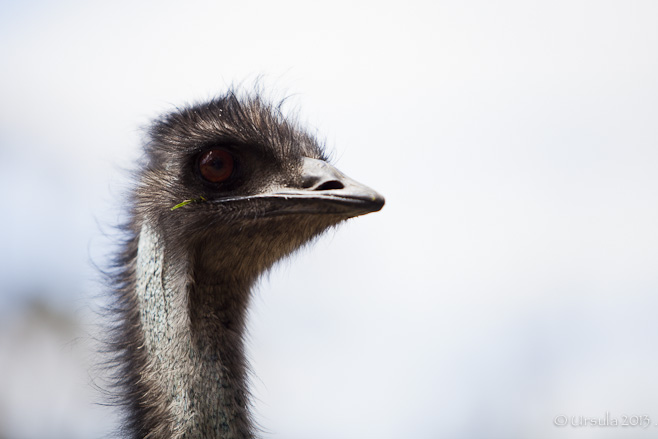
Emu (Dromaius novaehollandiae)
The three emus at the park wander freely; I’ve lost food to birds like these before, so I am cautious.
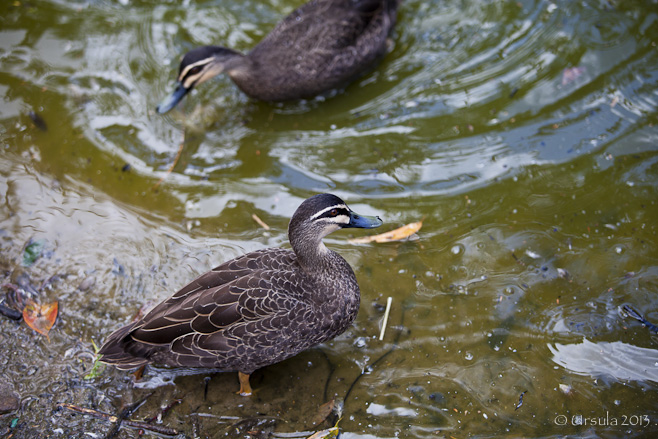
Pacific Black Duck (Anas superciliosa)
You can’t have an animal park without a duck pond!

Eastern Swamphen (Porphyrio porphyrio)
I love watching colourful swamphens as they waddle across grass, or wade through shallow waters.

Half a Valentine
The Black Swan (Cygnus atratus) gives the duck pond a real Australian flavour.
Previously a run-down zoo, the property now operates as a private, not-for-profit organisation focusing on education, community involvement, and conservation. Many of the animals are “recovered” after being injured, and some were born in captivity. We were pleasantly surprised by the well-ordered grounds and the mix of free-roaming and penned animals.

Poroporo Flower (Solanum laciniatum)
Native trees, like this Kangaroo Apple (Poroporo) provide shade…

Kangaroo Apples (Solanum laciniatum)
… and fruit for wandering birds and animals.

Lizard
Watch your step! Small creatures may be hiding.

Laughing Kookaburra (Dacelo novaeguineae)
Even in the walk-through aviary, these large kingfishers proved difficult to photograph.

Agile Wallaby (Macropus agilis)
It always surprises me how powerful these animals are. The fencing is to protect trees from predation.

Long Nosed Potoroo (Potorous tridactylus)
We finally meet the tiny, eponymous, potoroo – with its long nose and dainty toes.

Eastern Grey Kangaroo (Macropus giganteus)
“Giganteus” is right! Eastern Greys can reach heights of 5-6 ft (1.5-1.8 m), and this one wasn’t short.

Sulphur Crested Cocatoo (Cacatua galerita)
This chatty old bird was born in captivity…

Female King Parrot (Alisterus scapularis)
… while this King Parrot is only visiting.

Australian King Parrot (Alisterus scapularis)
The male King Parrot is much more colourful than his mate.

Rainbow Lorikeet (Trichoglossus haematodus)
These are the cheeky wanderers who eat all the apples from our tree.

Dingo (Canis lupus dingo)
Djingo, one of the male dingos, surveys his domain.

Grey-headed Flying-fox (Pteropus poliocephalus)
The world must look very different to these giant megabats!

Dove
Symbols of love and peace, doves seem an appropriate bird for St Valentine’s Day.

Tawny Frogmouth (Podargus strigoides)
The Frogmouths, on the other hand, with their watchful eyes and huge mouths, look quite ferocious.

Olive python (Liasis olivaceus)
The olive python wound her way around her keeper’s legs…

Olive python (Liasis olivaceus)
… and came almost too close for my lens!

Olive Python
“Olive the Python” reminds us that we have just entered the Year of the Snake.
 The Year of Snake is often seen as difficult, and “focus and discipline will be necessary for you to achieve what you set out to create” during this one. The sanctuary is clearly a labour of love: for the owner and for the staff and volunteers who work there.
The Year of Snake is often seen as difficult, and “focus and discipline will be necessary for you to achieve what you set out to create” during this one. The sanctuary is clearly a labour of love: for the owner and for the staff and volunteers who work there.
Hopefully, this passion for what they are doing is enough to guard this space and these animals for many years to come.
Pictures: 05February2013


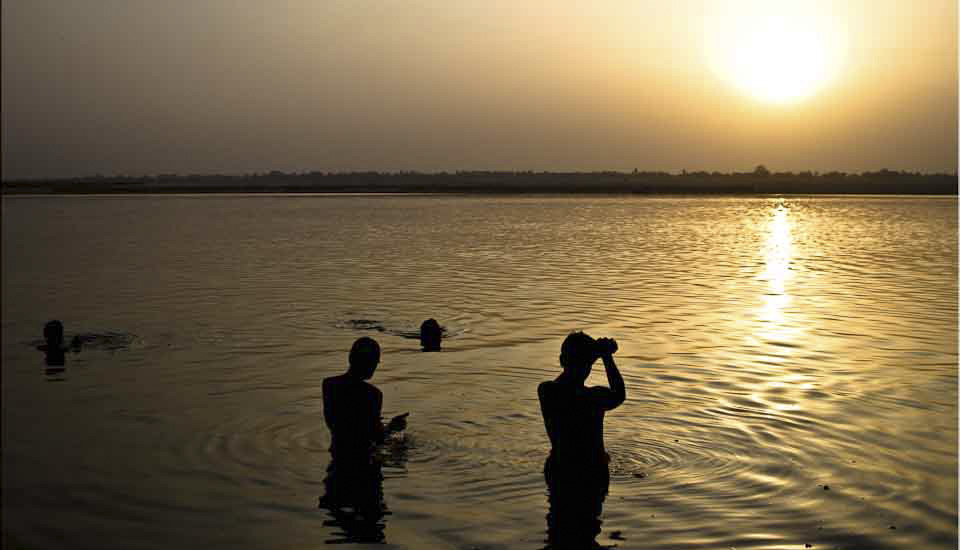
























.png)
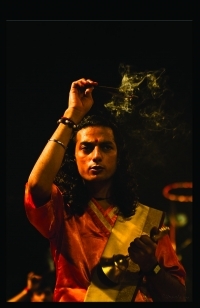
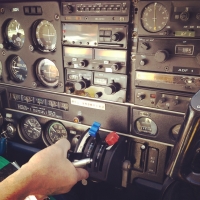
Fantastic – didn’t know this place existed but will surely visit when next down that way, if not for these amazing places many injured creatures would die, these are necessary in some cases for the survival of the species.
I love the tawny’s they are gorgeous…oh and would love a dingo pup… and the king parrots. hmmm I see a problem forming 🙂
Hi Signe!
They are doing some great work at the park. I, too, felt like going home with one of the dingos… 🙂
[…] love animals and animal sanctuaries (as regular visitors to these pages will know; e.g.: Potoroo Palace; Durrell Wildlife Park; The Two Tarongas; Gunung Leuser Orangutangs), so any excuse to visit a new […]